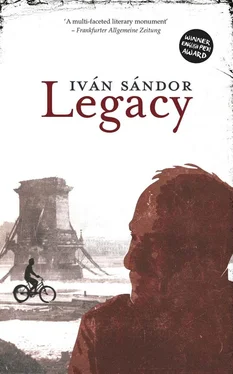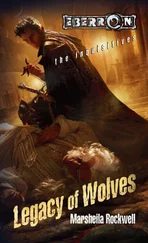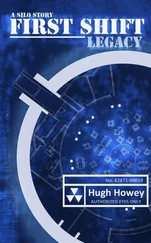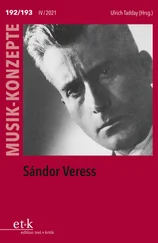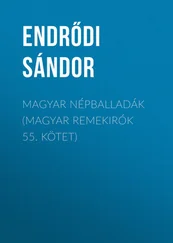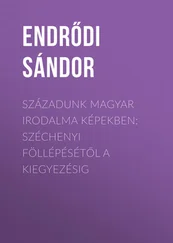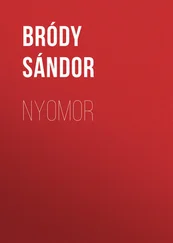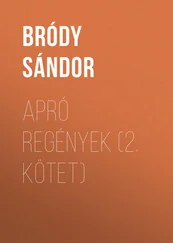Clown-face steps out of line, seemingly just drifting, but he looks back at me and winks. He is swinging his bag as if his mother had sent him to do some shopping. By now he is by the pavement, behind the back of the Arrow Cross lance-corporal on the left flank. He needs to pass between two men at the edge of the pavement, but one of them catches him by the arm and calls out to the lance-corporal. The lance-corporal beckons to the gendarmes, and from now on he has to walk between them. He grins and pulls himself up straight, although even so he only reaches their shoulders, and the gendarmes occasionally jostle him.
The Riegler boys are two rows in front. The bigger one looks back as if to urge caution; he may have guessed what I am preparing to do. It is necessary to keep an eye not only on the armed men but also on those standing about on the pavement. I put an arm round Vera and try to help her straighten up and again stand on tiptoe. She says she can see her cousins among the little ones, but I don’t think they can see us even though they have turned several times to look back. Edo is walking in the middle of the row; Judy has one hand being held by a Red Cross lady who is carrying a very small girl in her other arm.
We reach Rózsa Street. Then Izabella Street. A burst of noise. Riegler calls back to say that over there is the gate of the ghetto.
I stop after Hársfa Street, from where, to the best of my recollection, I caught a glimpse of the gate.
Vera’s steps are more determined, which is encouraging; she will need to be self-reliant. Again I catch a warning look from Riegler. The column is bunching up; the armed men are directed to positions by their commanding officers; Clown-face is pushed by the gendarmes into the back row. A policeman is stationed next to our row on the right; before us and on the left is an Arrow Crosser with a submachine gun. We close up to the group of tots. Another group is now marching at the front of ours. We are so close to the Outer Circle that I can now see on the far side the huge entrance gate; the guards level their weapons at the approaching procession.
The officer at the front shouts out orders. We march. I clutch Vera’s hand. Edo and Judy are now quite close, and Vera calls out their names. They look back, and Judy would like to stop but is not allowed.
I shall have to backtrack a lot in order to recapture the look on her face. A description acquires gravity if it allows something beyond what can be expressed or preserved to materialize in it. If I try to conjure up Judy’s face to myself I need to move beyond the stretch between Király Street, Hársfa Street and the Outer Circle, where she turns round on hearing Vera’s call, and go back to a summer afternoon in 1944 when, sitting on a pile of bricks in the yard of number 78 Amerikai Road — at the time littered with building materials — Vera and I first exchanged a kiss and instantly separated. Judy was tottering towards us from over by the spot where the sacks of cement were lying, clutching a pinwheel, the paper vanes of which the two of us had cut out with scissors, and our arms touched while we were pinning it to a sausage stick. Judy had raced with the vanes of the pinwheel spinning in the breeze, her cheeks flushed with delight. Vera had snatched her up and hugged her, then the two of them, hand in hand, had resumed running. Judy’s delight, therefore, was part and parcel of the kiss and also of the thrill which went through me afterwards while they, laughing merrily, had raced around. It was decades later that Judy’s face first appeared among my memories, bidden by another face, also that of a little girl, albeit a slightly older little girl, a face not unlike the close-up shots of the face of a young girl in Ingmar Bergman’s film of The Magic Flute as she intently watches, happy and excited, conveying the changing moods of the music with which both Mozart and Bergman express a knowledge of something more than itself, of wonderment over the many aspects of life it is possible to know. I squeeze Vera’s hand and watch the armed escort and so have to withdraw my attention from Judy. I have no choice, and I cannot be aware that it is for that reason her look becomes imprinted in my memory.
The first lieutenant marching at the head of the column reaches the other side of the Outer Circle and comes to a halt at the gate. The two gendarmes bringing up the rear were, at that point, near Hársfa Street. The children at the front had also crossed the Outer Circle by then. A number 6 tram was approaching from Wesselényi Street. The policeman who had been marching on the right-hand side hurried to the front, stopping where Király Street crosses the Outer Circle to take over directing the traffic. With a raised hand he warns pedestrians to halt. With the rails being slippery from slush the driver is unable to brake, so the policeman beckons that he should carry on, as, with the other hand, he bids the group of children in front of us to halt. The column is split in two.
It takes eight to ten seconds for the tram to rattle over the crossing, covering as it does so the figure of the first lieutenant on the far side of the Outer Circle and the policeman who is directing the traffic. Vera is still waving to Judy, and I am holding the other hand. I yank her after me and we step out of line.
I cannot see the Riegler brothers even past Hársfa Street.
I need to find a gap between the people standing on the pavement.
The air-raid siren starts up.
Suddenly everyone is running.
The tram had passed the crossing. The policeman directing the traffic snatches at his rifle. The pedestrians who had been standing on the pavement scatter. No one is paying any attention to us. By now we are on the pavement. We carry on towards Mussolini Square. 6I get the feeling that a man in a fur coat was thinking of setting off after us.
I stop in the middle where Király Street crosses Erzsébet Outer Circle, waiting until the traffic signal has turned red and the traffic coming from Lövölde Square has come to a standstill. I bend down for a few seconds to chalk out in my mind the spot where we stepped out of the column fifty-eight years ago. I pass my hand over the paving stones. Several pedestrians stare at me. A student even tries to help me up. Thanks, I say. I’m fine. Another boy hoots with laughter, meanwhile the traffic light has changed and a car driver is honking at me. Behind me is the shop front of a KFC outlet, in front a branch of the K & H Bank of the Kredietbank of Belgium, to my right the violet lights of an erotic show.
I often alighted from a trolley bus here in the seventies. There used to be a coffee bar where I would drink a coffee standing up; there were always several women at the tables, and I later learned that I was drinking in a place that prostitutes used to use. Some of the women were well into their forties, but they still cut good figures. It may have been that those working in the erotic show were daughters of those women. During the war they could well have been much the same age as me, and it’s not impossible their mothers had also been prostitutes. I have heard tell that there were a lot of men who had been called up for forced-labour service and deserters from the regular army who found a hideaway in the bordellos of Conti Street and Ó Street on the other side of Andrássy Avenue in the VIth District.
It is fourteen steps from here to number 5 Theresa Outer Circle. I look at the entrance and the stairs. I am not sure that this is where we came while the air-raid siren was sounding and everyone sought cover at a run. At number 7, though, everything is familiar: the entrance, round arch leading to the staircase, the wrought-iron banisters on the steps.
The man in a fur coat who has been keeping us under observation from the moment we stepped out of the column is coming after us. I do not fancy testing how well my ARP messenger papers will stand up. The gate to the house is open with whitewash arrows to indicate where the air-raid shelter is located. I wait until the man in the fur coat is caught up in the crowd before hastily moving further on.
Читать дальше
